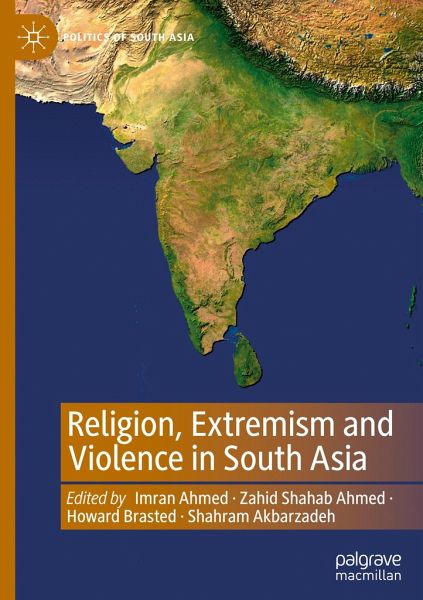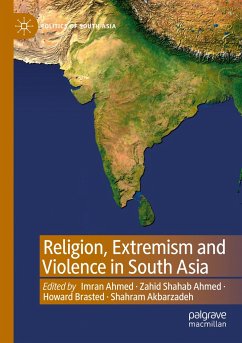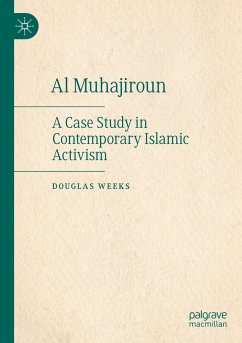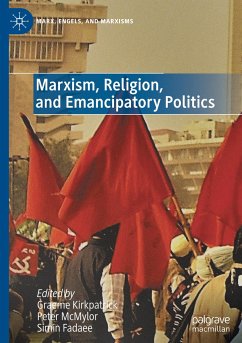
Religion, Extremism and Violence in South Asia

PAYBACK Punkte
53 °P sammeln!
This book sheds light on religiously motivated extremism and violence in South Asia, a phenomenon which ostensibly poses critical and unique challenges to the peace, security and governance not only of the region, but also of the world at large. The book is distinctive in-so-far as it reexamines conventional wisdom held about religious extremism in South Asia and departs from the literature which centres its analyses on Islamic militancy based on the questions and assumptions of the West's 'war on terror'. This volume also offers a comprehensive analysis of new extremist movements and how thei...
This book sheds light on religiously motivated extremism and violence in South Asia, a phenomenon which ostensibly poses critical and unique challenges to the peace, security and governance not only of the region, but also of the world at large. The book is distinctive in-so-far as it reexamines conventional wisdom held about religious extremism in South Asia and departs from the literature which centres its analyses on Islamic militancy based on the questions and assumptions of the West's 'war on terror'. This volume also offers a comprehensive analysis of new extremist movements and how their emergence and success places existing theoretical frameworks in the study of religious extremism into question. It further examines topical issues including the study of social media and its impact on the evolution and operation of violent extremism. The book also analyses grassroots and innovative non-state initiatives aimed to counter extremist ideologies. Through case studies focusing on Bangladesh, India, Pakistan and Sri Lanka, this collection examines extremist materials, methods of political mobilisation and recruitment processes and maps the interconnected nature of sociological change with the ideological transformations of extremist movements.














